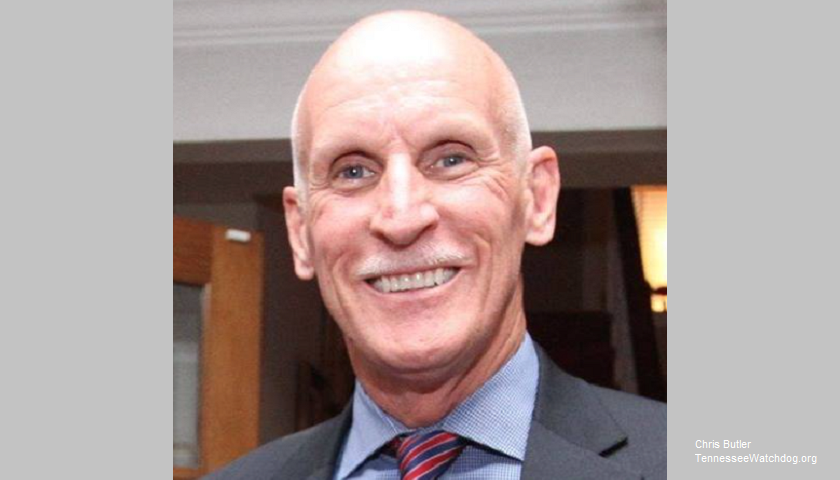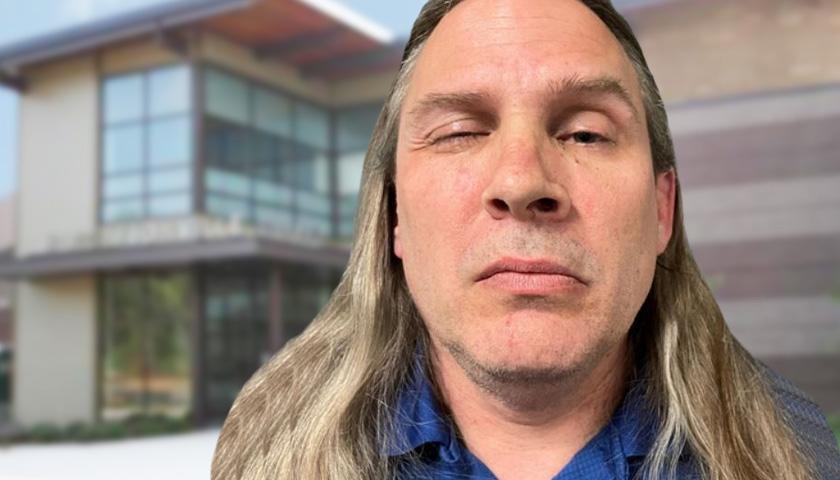by Chris Butler
To hear some people in Sumner County tell it, County Executive Anthony Holt is “hell-bent” on building an industrial park north of Gallatin along Dobbins Pike.
The park’s would-be neighbors don’t want it.
But Holt, in his third term as county commissioner, says he’s dismissed the idea of using county money to pay for the park, mostly because he couldn’t persuade other commissioners to play along.
“I’m confident the commissioners in general are doing what they need to do. But it’s Holt I’m concerned about,” said Brad Wear, one of the many people who live adjacent to the proposed park and whose property values could suffer if it’s built.
He and several of his neighbors told Tennessee Watchdog the proposed industrial park may push them to leave their homes.
As reported, local developers seem to have taken an interest in the park, enticed by state taxpayer money to help get it built. As reported, those developers hold positions of influence in county government, thanks to Holt.
“This is a story about local officials, starting with the county executive, who have tremendous power. Holt gets to appoint all the committees, and they are either approved, or not, by the Board of County Commissioners, whether it’s planning, zoning, or industrial development,” Wear said.
As reported, county commissioners almost always rubber-stamp Holt’s choices, without debate.
“All these guys who make their money by turning over our land are beholden to Holt because he put them there,” Wear said.
“Then they do things behind the scenes. Holt is a puppet master who opens up the door for all these people.”
But Holt says his support of the park isn’t about helping his developer friends. He says the park has the potential for what a typical politician yearns for most — taxpayer money, and more of it. The park, Holt went on, will generate gobs and gobs of property tax revenue.
But all of this may overlook a few important facts.
Guidelines from the county’s 2013 master plan advise against zoning this area — currently agricultural — into something industrial.
On top of that, consultants last year seemed to advise against placing an industrial park in that area.
Original estimates say $20 million is needed for the park.
County Commissioner Moe Taylor said Holt and the developers will need three to four times that amount for a proper job.
“If we pursue this we only have a debt capacity of probably close to $60 million,” Taylor said.
“I don’t think Holt will say this publicly, but I don’t think he’ll give up on this project.”
County Commissioner Larry Hinton, meanwhile, said the park, if it goes through, “won’t add much to Holt’s legacy in the long run.”
“If it’s unpopular then Holt might let it die down until after the next election, only to then pick it back up again,” Hinton said.
“But I admire Holt for having the guts to bring this up because he knew there would be blowback.”
Holt told Tennessee Watchdog his county needs more tax revenue to pay for more schools, roads, police and other public safety needs.
“Really, the best way to generate revenue is to create economic activity. Industrial commercial property is assessed at 40 percent of appraised value versus residential and agricultural, which is 25 percent. Industrial pays more,” Holt said.
As reported, members of the county’s Industrial Development Board, including a developer named Danny Hale, want the park. Those board members are tasked with recruiting new industries to the county.
Another developer, Bruce Rainey, who sits on the county’s Zoning Appeals Board, said he’s talking to landowners with property at the site of the proposed park — concerning what, exactly, he won’t say.
The Zoning Appeals Board, according to County Attorney Leah Dennen, deals with issues that exist in present zoning rules and not zoning changes.
Thus, Dennen, went on, Rainey has no conflict of interest.
Members of the county’s Planning Commission — which neither Hale nor Rainey are on — decide whether to allow zoning changes.
MAP: An overhead rendering of Tina Earp’s property (photo courtesy of the city of Gallatin’s website)
“I have nothing to gain from any of this. I have no property around the area. I only have the county’s best interests at heart,” Holt said.
If the property owners are indeed talking with Rainey about rezoning their properties from agricultural to industrial, or even commercial, Holt says “that’s their right to do so.”
“As far as I know we live in a free country, and we don’t live in a planned economy. These people can at least talk to the Planning Commission about how they want to use their property,” Holt said.
“And to say that I’m ‘hell-bent’ doesn’t sound very complimentary, but these people must feel that I have in some way done something to them personally. That was never my intent.”
Hinton said he considers Holt’s plan impractical.
“My problem with this is I’m afraid the chicken will come before the egg,” Hinton said.
“New schools would have to be built before the income comes in to pay for it.”
Sumner County’s population, according to the most recent U.S. Census, is 172,706. The county’s long-range planning documents say the population will include 72,000 more people in 2035.
The documents flat-out say county officials should reference them for any future rezoning requests or other land use decisions.
As reported, the county already has an industrial park, in Gallatin, with lots of acreage left for future needs.
As for the site of the proposed industrial park, it appears the targeted area is supposed to stay mostly rural in 2035 — which would seem to go against what Holt and the developers want.
“It’s not a zoning law, but it is the plan,” Wear said.
“The land in question they want to zone as industrial is zoned as suburban and rural. Why are they even considering it industrial, particularly when we know there’s a better site to be developed that is already in the industrial footprint?”
Documents also show county officials hired an Ohio-based group, Austin Consulting, last year to determine the best place for a new industrial park.
Members of that consulting group said Gallatin’s existing industrial park and another area, the Langley Hall Industrial Site, “remain the best opportunities to attract a new greenfield industrial development center in Sumner County.”
As for the area at which Holt is looking, the consultants said a large piece of that land “would require significant time and resources to develop and possess a few potential challenges.”
Those challenges include a lack of electric and natural gas infrastructure and the fact it isn’t near a four-lane highway.
The consultants did say, though, the site “is capable of accommodating a large operation in a suitable timeframe.”
“This is not something that needs to be built immediately or on speculation, but significant planning needs to begin in the coming months,” the consultants said.
“If not done already, Sumner County should put this property under option for purchase,” the consultants added.
Wear doesn’t think Holt has done anything wrong or gained personally from the situation.
“All we have are a bunch of facts that don’t make sense,” Wear said in an email.
“Mr. Holt says the Planning Commission, Zoning Board of Appeals, and Industrial Development Board are different things, but they all deal with land use. It would be embarrassing on their part to say that they are not interconnected.”
Reprinted with permission from TennesseeWatchdog.org
Contact Christopher Butler at [email protected]
Follow Tennessee Watchdog and receive regular updates through Facebook and Twitter
Follow Chris Butler on his professional Facebook page Chris Butler Writer/Journalist





